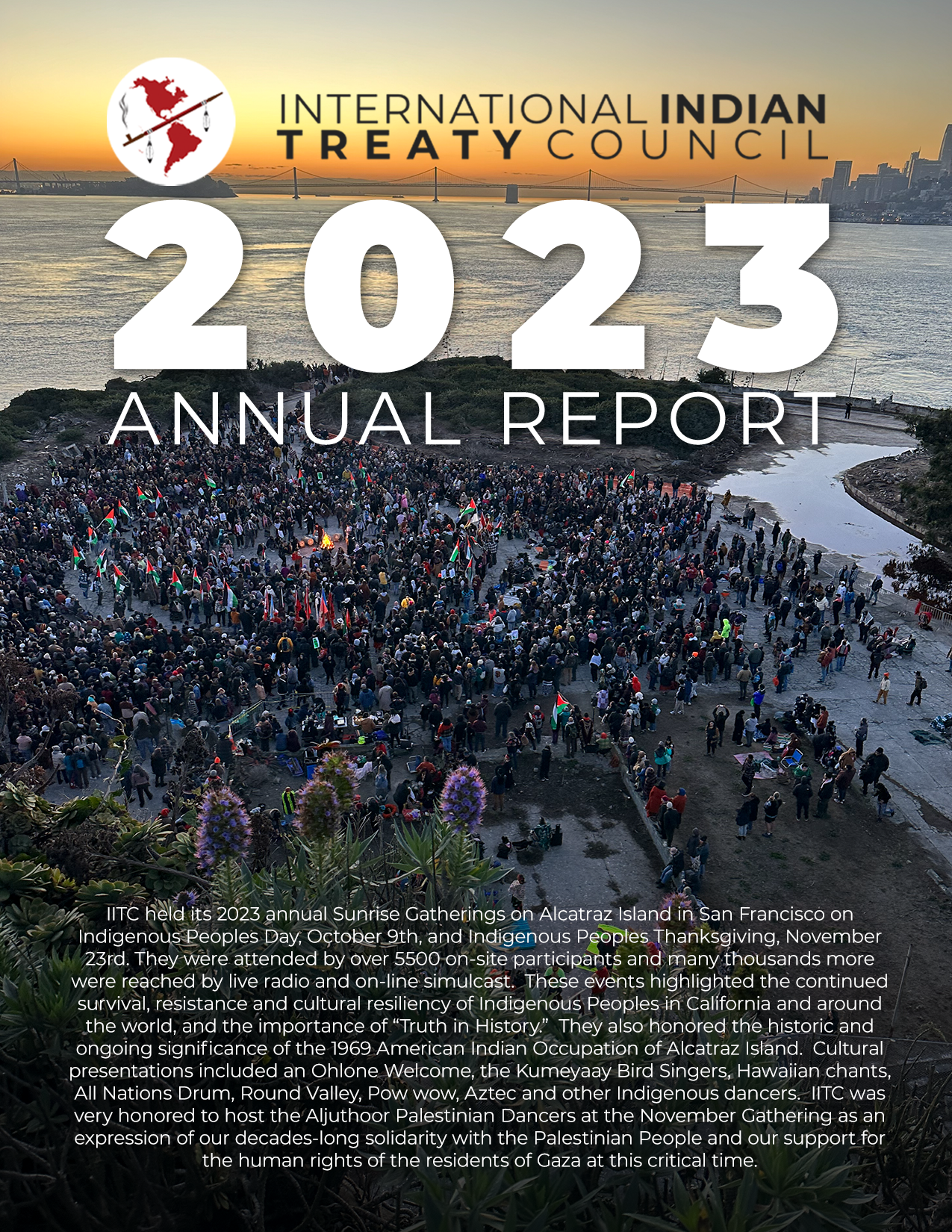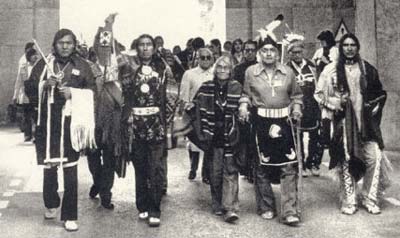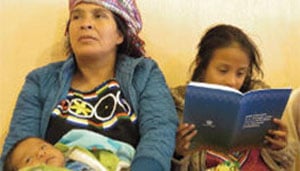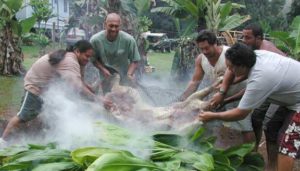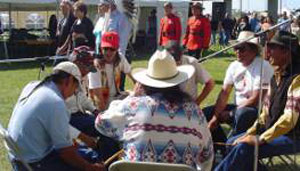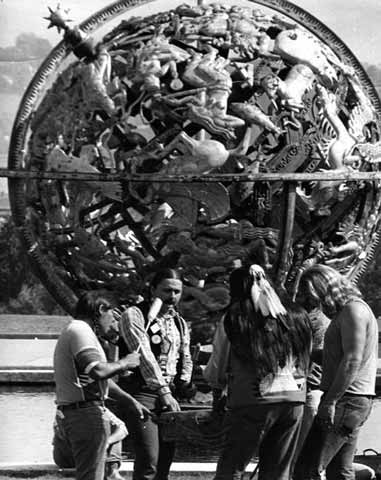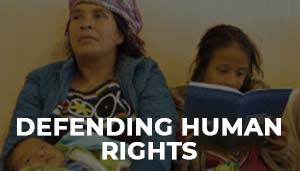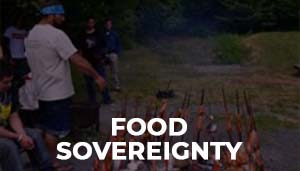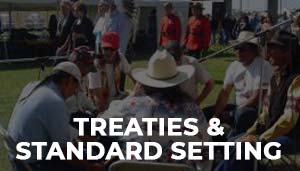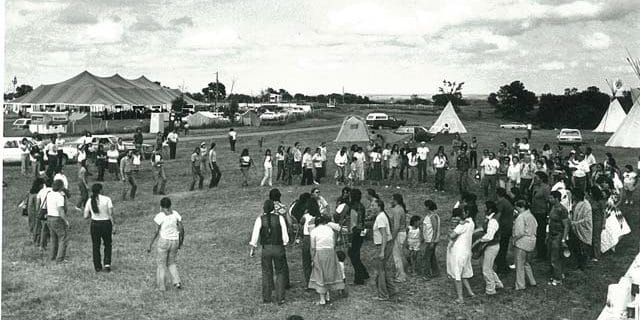Honourable Mark McGowan MLA
13th Floor, Dumas House 2 Havelock Street
WEST PERTH WA 6005
[email protected]
cc: United Nations Special Rapporteur on the Rights of Indigenous Peoples Mr. Francisco Cali Tzay, via email to [email protected]
cc: United Nations Special Rapporteur in the field of cultural rights Ms. Karima Bennoune via email to [email protected]
cc: United Nations Special Rapporteur on freedom of religion or belief Mr. Ahmed Shaheed via email to [email protected]
cc: United Nations Special Rapporteur on contemporary forms of racism, Ms. E. Tendayi Achiume via email to [email protected]
Re: Aboriginal Cultural Heritage Bill (Western Australian) 2021
Respectful Greetings Premier McGowan,
We wish to bring to your urgent attention my concerns with the Bill and the issues relating to the management of Aboriginal culture heritage in Western Australia.
The International Indian Treaty Council (IITC) is an organization of Indigenous Peoples from the Americas, the Caribbean and the Pacific working for the Sovereignty and Self Determination of Indigenous Peoples and the recognition and protection of Indigenous Rights, Treaties, Traditional Cultures and Sacred Lands. IITC was founded on the Standing Rock Reservation in South Dakota in 1974. In 1977 the United Nations Economic and Social Council (ECOSOC) was the first Indigenous organization to receive Non-Governmental Organization (NGO) Consultative Status with the UN Economic and Social Council, and in 2011 was the first Indigenous Peoples organization to be upgraded to General Consultative Status.
We are aware that a request for Urgent Action to the Committee on the Elimination of Racial Discrimination was made on 10 September 2021 by Indigenous peoples from Western Australia and is currently before the Committee. We have been provided with a copy of the Urgent Action and further concerns that the Bill is inconsistent with the United Nations Declaration on the Rights of Indigenous Peoples (UNDRIP).
Organizations representing impacted Indigenous peoples have expressed concerns about the Bill and include the following:
- The Bill’s design and consultation process, including a failure to involve Indigenous peoples in Western Australia in a co-design process consistent with Article 3 and Article 32 of
- Lack of free, prior and informed consent, leaving ultimate decision-making to the responsible Minister where there is no agreement between Indigenous groups and proponents and is inconsistent with Article 32 of
- Lack of safeguards within the Bill to ensure that significant cultural heritage will not be subject to destruction, instead this is left to be determined by the responsible Minister in circumstances already described, which is inconsistent to Indigenous peoples’ right to maintain, control, protect and develop their cultural heritage consistent with Article 31 of UNDRIP. The Minister’s decision includes consideration of an ‘in the interests of the State’ test, which threatens to prioritize economic drivers before protection of significant cultural heritage and, thus, risks racially discriminatory decision-making.
- No review or appeal rights for Aboriginal peoples where a decision is made to destroy their cultural heritage and is inconsistent with obligations to provide effective mechanisms for just and fair redress, which is inconsistent with Article
We draw your attention to the concerns that were expressed in the Parliament of the Commonwealth of Australia, Joint Standing Committee on Northern Australia, A Way Forward: Final report into the destruction of Indigenous heritage sites at Juukan Gorge (October 2021) (at p.99):
The Committee notes with concern that the Aboriginal organization’s views indicate that they have concluded that provisions allowing that the Minister may make decisions about approvals in certain circumstances, will mean that the Minister will make the decisions, and do so on a routine basis. This interpretation appears to reflect traditional owners’ negative experience of the operation of the [Aboriginal Heritage Act] over many years. There is a clear lack of confidence and trust that such a situation will not be replicated under the proposed legislation. It will be challenging for the WA Government to pass legislation that is generally acceptable to all parties if such fundamental problems are not overcome.
Moreover, Australia is party to the International Covenant on Civil and Political Rights (ICCPR) and supports the United Nations Declaration on the Rights of Indigenous Peoples (UNDRIP).
Part II, Art. 2 of the ICCPR states that each State Party undertakes responsibility to ensure that when rights or freedoms are violated that effective remedy and determinations by a competent authority are provided, and work to “develop the possibilities of judicial remedy” as well as ensure enforcement of such remedies occurs. Further, Part II, Art 5(1) states that States do not have the right to “engage in any activity or perform any act aimed at the destruction of any of the rights and freedoms recognized herein;” and Part III, Art. 27 states that where “ethnic, religious or linguistic minorities exist, persons belonging to such minorities shall not be denied the right, in community with the other members of their group, to enjoy their own culture…”
Here, the Bill deprives Indigenous peoples of a merits review of the Minister’s decision while affording such rights instead to developers and mining companies and endangers Indigenous peoples’ right to “enjoy their own culture” even though State parties do not have the right engage in activities that are “aimed at the destruction” of rights found within ICCPR. The Bill does not ensure effective rights of review for Indigenous peoples. Further, enjoyment of culture is a right found therein, and therefore, a State may not engage in activity, legislative or otherwise, to endanger the right of cultural enjoyment.
Similarly, Articles 11, 12, 25, 31 of UNDRIP are implicated here. Art. 11 states Indigenous peoples “have the right to practice and revitalize their cultural traditions and customs,” and includes “maintain[ing], protect[ing] and develop[ing] the past, present and future manifestations of their cultures, such as archaeological and historical sites…” Further, States have the obligation to “provide redress through effective mechanisms.” Such mechanisms may include “restitution, developed in conjunction (emphasis added) with Indigenous peoples, with respect to their cultural, intellectual, religious and spiritual property taken without their free, prior and informed consent (emphasis added) or in violation of their laws, traditions and customs.” Art. 12 states Indigenous peoples have the right to “maintain, protect, and have access in privacy to their religious and cultural sites.” Moreover, Art. 25 states Indigenous peoples “have the right to maintain and strengthen their distinctive spiritual relationship with their traditionally owned or otherwise occupied and used lands, territories, waters and coastal seas…to uphold their responsibilities to future generations in this regard.” Art. 31 states Indigenous peoples have the right to “maintain, control, protect and develop their cultural heritage, traditional knowledge and traditional cultural expressions…” In addition, States have the obligation to “take effective measures to recognize and protect the exercise of those rights.”
Here, the Bill, as written, impedes Indigenous peoples’ rights to their cultural traditions and customs, including the right to protect archaeological and historical sites. Additionally, the Bill does not provide “effective mechanisms” to redress violations of UNDRIP, and remedies have not been developed with Indigenous peoples, meaning free, prior and informed consent is absent. The Bill does not provide Indigenous peoples with the ability to maintain and protect sacred sites. The previous bill allowed for more than 1,000 sites to be destroyed even with an appeals process. The current Bill removes appeals processes and only allows for the government to seek legal remedy against third parties that are in violation of the Bill. Current shortfalls in adherence to UNDRIP in the Bill endangers Indigenous peoples’ rights to their culture and religion by permitting third parties to destroy sacred sites without adequate redress and remedy made with Indigenous peoples using free, prior and informed consent.
In such circumstances, we respectfully request the Bill be immediately withdrawn. A process should be put in place that ensures the free, prior and informed consent of Indigenous peoples that may be affected is secured and further legislation that affirms and protects the rights of Indigenous peoples in accordance with the rights affirmed in the U.N. Declaration of the Rights of Indigenous Peoples be drafted.
For further information please contact Dr. Hannah McGlade, Associate Professor, Curtin Law School, Member, U.N. Permanent Forum for Indigenous Issues, [email protected], 040 1589071 (local) 61401589071 (international); Summer Blaze Aubrey, IITC Staff Attorney for Human Rights, [email protected], +(509) 823-6951.
Sincerely,
![]()
Ron Lameman
Board President
International Indian Treaty Council
![]()
Andrea Carmen
Executive Director
International Indian Treaty Council
![]()
Summer Blaze Aubrey
Staff Attorney for Human Rights
International Indian Treaty Council
Share this post
Aboriginal Cultural Heritage Bill (Western Australian) 2021
Honourable Mark McGowan MLA
13th Floor, Dumas House 2 Havelock Street
WEST PERTH WA 6005
[email protected]
cc: United Nations Special Rapporteur on the Rights of Indigenous Peoples Mr. Francisco Cali Tzay, via email to [email protected]
cc: United Nations Special Rapporteur in the field of cultural rights Ms. Karima Bennoune via email to [email protected]
cc: United Nations Special Rapporteur on freedom of religion or belief Mr. Ahmed Shaheed via email to [email protected]
cc: United Nations Special Rapporteur on contemporary forms of racism, Ms. E. Tendayi Achiume via email to [email protected]
Re: Aboriginal Cultural Heritage Bill (Western Australian) 2021
Respectful Greetings Premier McGowan,
We wish to bring to your urgent attention my concerns with the Bill and the issues relating to the management of Aboriginal culture heritage in Western Australia.
The International Indian Treaty Council (IITC) is an organization of Indigenous Peoples from the Americas, the Caribbean and the Pacific working for the Sovereignty and Self Determination of Indigenous Peoples and the recognition and protection of Indigenous Rights, Treaties, Traditional Cultures and Sacred Lands. IITC was founded on the Standing Rock Reservation in South Dakota in 1974. In 1977 the United Nations Economic and Social Council (ECOSOC) was the first Indigenous organization to receive Non-Governmental Organization (NGO) Consultative Status with the UN Economic and Social Council, and in 2011 was the first Indigenous Peoples organization to be upgraded to General Consultative Status.
We are aware that a request for Urgent Action to the Committee on the Elimination of Racial Discrimination was made on 10 September 2021 by Indigenous peoples from Western Australia and is currently before the Committee. We have been provided with a copy of the Urgent Action and further concerns that the Bill is inconsistent with the United Nations Declaration on the Rights of Indigenous Peoples (UNDRIP).
Organizations representing impacted Indigenous peoples have expressed concerns about the Bill and include the following:
- The Bill’s design and consultation process, including a failure to involve Indigenous peoples in Western Australia in a co-design process consistent with Article 3 and Article 32 of
- Lack of free, prior and informed consent, leaving ultimate decision-making to the responsible Minister where there is no agreement between Indigenous groups and proponents and is inconsistent with Article 32 of
- Lack of safeguards within the Bill to ensure that significant cultural heritage will not be subject to destruction, instead this is left to be determined by the responsible Minister in circumstances already described, which is inconsistent to Indigenous peoples’ right to maintain, control, protect and develop their cultural heritage consistent with Article 31 of UNDRIP. The Minister’s decision includes consideration of an ‘in the interests of the State’ test, which threatens to prioritize economic drivers before protection of significant cultural heritage and, thus, risks racially discriminatory decision-making.
- No review or appeal rights for Aboriginal peoples where a decision is made to destroy their cultural heritage and is inconsistent with obligations to provide effective mechanisms for just and fair redress, which is inconsistent with Article
We draw your attention to the concerns that were expressed in the Parliament of the Commonwealth of Australia, Joint Standing Committee on Northern Australia, A Way Forward: Final report into the destruction of Indigenous heritage sites at Juukan Gorge (October 2021) (at p.99):
The Committee notes with concern that the Aboriginal organization’s views indicate that they have concluded that provisions allowing that the Minister may make decisions about approvals in certain circumstances, will mean that the Minister will make the decisions, and do so on a routine basis. This interpretation appears to reflect traditional owners’ negative experience of the operation of the [Aboriginal Heritage Act] over many years. There is a clear lack of confidence and trust that such a situation will not be replicated under the proposed legislation. It will be challenging for the WA Government to pass legislation that is generally acceptable to all parties if such fundamental problems are not overcome.
Moreover, Australia is party to the International Covenant on Civil and Political Rights (ICCPR) and supports the United Nations Declaration on the Rights of Indigenous Peoples (UNDRIP).
Part II, Art. 2 of the ICCPR states that each State Party undertakes responsibility to ensure that when rights or freedoms are violated that effective remedy and determinations by a competent authority are provided, and work to “develop the possibilities of judicial remedy” as well as ensure enforcement of such remedies occurs. Further, Part II, Art 5(1) states that States do not have the right to “engage in any activity or perform any act aimed at the destruction of any of the rights and freedoms recognized herein;” and Part III, Art. 27 states that where “ethnic, religious or linguistic minorities exist, persons belonging to such minorities shall not be denied the right, in community with the other members of their group, to enjoy their own culture…”
Here, the Bill deprives Indigenous peoples of a merits review of the Minister’s decision while affording such rights instead to developers and mining companies and endangers Indigenous peoples’ right to “enjoy their own culture” even though State parties do not have the right engage in activities that are “aimed at the destruction” of rights found within ICCPR. The Bill does not ensure effective rights of review for Indigenous peoples. Further, enjoyment of culture is a right found therein, and therefore, a State may not engage in activity, legislative or otherwise, to endanger the right of cultural enjoyment.
Similarly, Articles 11, 12, 25, 31 of UNDRIP are implicated here. Art. 11 states Indigenous peoples “have the right to practice and revitalize their cultural traditions and customs,” and includes “maintain[ing], protect[ing] and develop[ing] the past, present and future manifestations of their cultures, such as archaeological and historical sites…” Further, States have the obligation to “provide redress through effective mechanisms.” Such mechanisms may include “restitution, developed in conjunction (emphasis added) with Indigenous peoples, with respect to their cultural, intellectual, religious and spiritual property taken without their free, prior and informed consent (emphasis added) or in violation of their laws, traditions and customs.” Art. 12 states Indigenous peoples have the right to “maintain, protect, and have access in privacy to their religious and cultural sites.” Moreover, Art. 25 states Indigenous peoples “have the right to maintain and strengthen their distinctive spiritual relationship with their traditionally owned or otherwise occupied and used lands, territories, waters and coastal seas…to uphold their responsibilities to future generations in this regard.” Art. 31 states Indigenous peoples have the right to “maintain, control, protect and develop their cultural heritage, traditional knowledge and traditional cultural expressions…” In addition, States have the obligation to “take effective measures to recognize and protect the exercise of those rights.”
Here, the Bill, as written, impedes Indigenous peoples’ rights to their cultural traditions and customs, including the right to protect archaeological and historical sites. Additionally, the Bill does not provide “effective mechanisms” to redress violations of UNDRIP, and remedies have not been developed with Indigenous peoples, meaning free, prior and informed consent is absent. The Bill does not provide Indigenous peoples with the ability to maintain and protect sacred sites. The previous bill allowed for more than 1,000 sites to be destroyed even with an appeals process. The current Bill removes appeals processes and only allows for the government to seek legal remedy against third parties that are in violation of the Bill. Current shortfalls in adherence to UNDRIP in the Bill endangers Indigenous peoples’ rights to their culture and religion by permitting third parties to destroy sacred sites without adequate redress and remedy made with Indigenous peoples using free, prior and informed consent.
In such circumstances, we respectfully request the Bill be immediately withdrawn. A process should be put in place that ensures the free, prior and informed consent of Indigenous peoples that may be affected is secured and further legislation that affirms and protects the rights of Indigenous peoples in accordance with the rights affirmed in the U.N. Declaration of the Rights of Indigenous Peoples be drafted.
For further information please contact Dr. Hannah McGlade, Associate Professor, Curtin Law School, Member, U.N. Permanent Forum for Indigenous Issues, [email protected], 040 1589071 (local) 61401589071 (international); Summer Blaze Aubrey, IITC Staff Attorney for Human Rights, [email protected], +(509) 823-6951.
Sincerely,
![]()
Ron Lameman
Board President
International Indian Treaty Council
![]()
Andrea Carmen
Executive Director
International Indian Treaty Council
![]()
Summer Blaze Aubrey
Staff Attorney for Human Rights
International Indian Treaty Council
